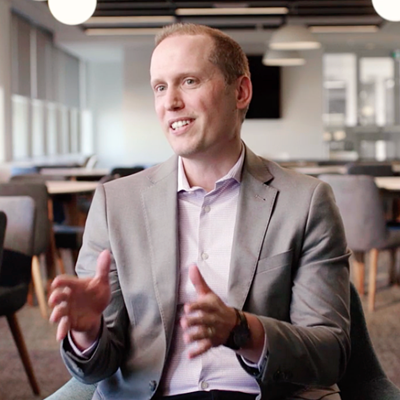Welcome to EquiNet
Equitable's secure site for our AdvisorsWelcome to EquiNet
Equitable's secure site for our AdvisorsWhat's New
Individual Insurance

Curious about large case pricing? Our experts are here to help
Ask our Experts Episode 2
At Equitable, we’re committed to the large case market. Our dedicated team of experts is here to support you from application through to policy placement.
Ask our Experts is a mini docuseries features key members of our large case team. They talk about their work, their perspectives, and their role in the large case experience.
Watch Ask our Experts Episode 2 featuring Kevin Till, AVP of Individual Life Pricing.
Kevin chats with us about:
• What he finds interesting about large case pricing.
• How quickly Equitable can turn around a large case quote.
• The difference between a mutual and a stock insurance company.
• Equitable’s reinsurance strategy.
Learn more:
Visit our large case markets webpage to learn more about our team of dedicated experts.
Don’t miss the favourites! Watch our most viewed Ask our Experts episodes here:
>
Do you have a large case opportunity? Talk to your wholesaler to learn more.
3/2/2026
1 minute read
Individual Wealth

A good time to look at the Equitable Money Market Fund
Whether clients are looking for a short-term cash savings solution or are interested in funding a dollar cost averaging strategy, the Equitable Life Money Market Fund Select may be an ideal solution.
With a current yield to maturity of 1.46%*, the fund provides maximum income through short-term investments consistent with preservation of capital and liquidity.
And advisors earn the full commission upon deposit on funds used for a dollar cost averaging strategy.
For more information check out Equitable Money Market Fund or contact your Director, Investment Sales.
* As of February 27, 2026, net of fees. Yield to Maturity: The market value weighted average yield to maturity includes the coupon payments and any capital gain or loss that the investor will realize by holding the bonds to maturity.
™ or ® denote registered trademarks of The Equitable Life Insurance Company of Canada.
Date posted: March 2, 2026
1 minute read
Individual Insurance
Individual Wealth
Group Benefits
Who we are
The power of together
At Equitable, we believe in the power of working together. It's a mindset that drives our behaviours, decisions, and actions to deliver impact and positive outcomes for our clients, advisors, partners, each other, and the communities we cherish.